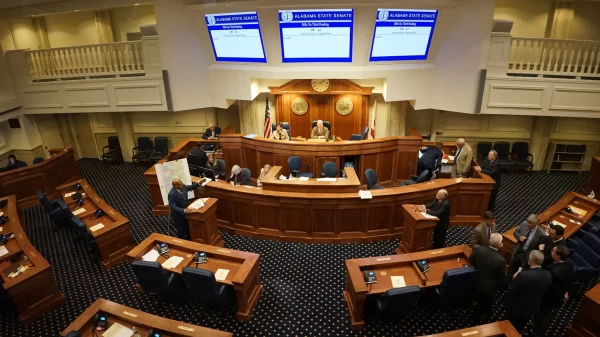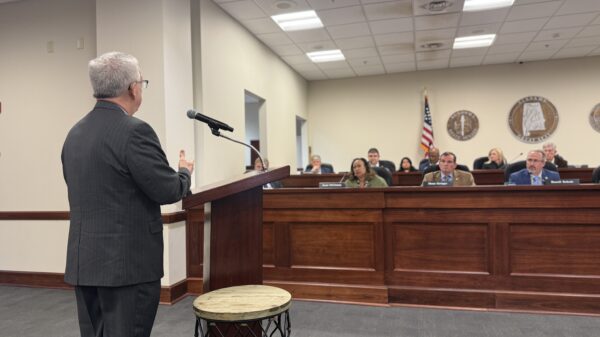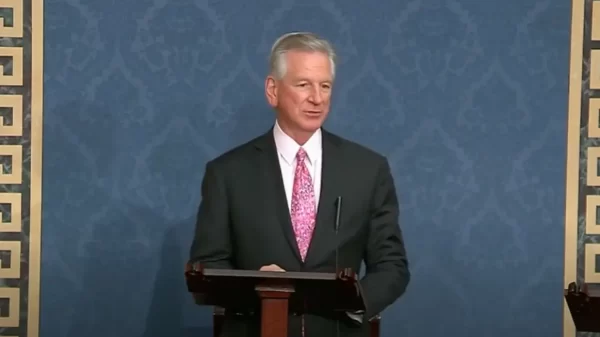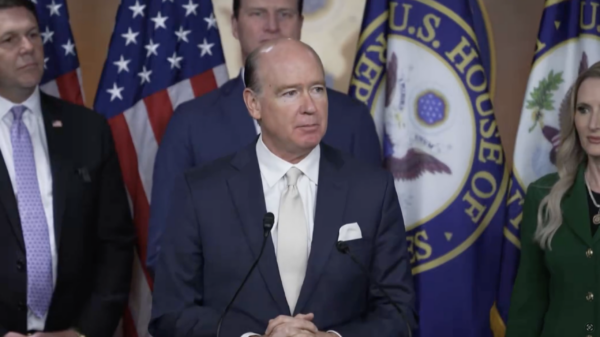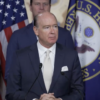By Brandon Moseley
Alabama Political Reporter
Tuesday, March 17, US Representative Gary Palmer (R-Hoover) released a statement following the release of a House GOP proposed FY 2016 budget. Congressman Palmer serves on the House Budget Committee.
Representative Palmer said in a statement, “One of my first priorities as a member of Congress is getting the country’s fiscal house in order. We must end the era of endless deficits and debt that is spiraling out of control. The national debt has risen by almost 50 percent in the past six years alone, and while the deficit has been temporarily reduced, it has not been eliminated and all projections indicate that it will resume a steep and continuous rise unless serious reforms are made as to how Washington spends the taxpayer’s hard-earned dollars.”
The conservative Alabama Congressman said, “There are several positive aspects of this proposal. This budget strengthens Medicare by creating a premium support system that will provide market incentives for both better and less expensive care, while not making any changes for those at or near retirement. It repeals Obamacare in full, including repealing the Medicaid expansion under Obamacare which will save over $900 billion by 2025. It also reforms Medicaid by giving greater flexibility to the states to ensure it is spent only on those who need it most. It starts the process of addressing Social Security insolvency by stopping any raids on the retirement trust fund and by setting up a framework for further structural reforms.”
Rep. Palmer concluded, “I think we can do more. Federal spending still exceeds revenues in the coming years in this proposal, but I believe there will be good opportunities from the framework the committee has created. Congress should act on them.”
Also on Tuesday, March 17, Speaker of the House John Boehner (R-Ohio) commented on the budget proposal at a press conference with Republican leaders. Speaker Boehner said, “For 53 of the last 60 years, the Federal government has spent more than it has taken in – 53 of the last 60 years. It’s unacceptable.”
Congressman Boehner said, “To this day, now in his seventh year in office, the president has never proposed a budget that balances. Our budget will balance, but it’s also about growing our economy, growing jobs and building economic strength for our future.”
House Budget Committee Chairman Tom Price, M.D. (R-Georgia) said in a statement, “Today, our nation faces tremendous fiscal and economic challenges and, if nothing is done, a future of less opportunity and low expectations. The proposal that the House Budget Committee has introduced today – A Balanced Budget for a Stronger America – is a plan to force Washington to start tackling these challenges with positive solutions. It is a plan that balances the budget in less than ten years, secures and strengthens vital programs – like Medicare – provides our military men and women with the resources they need to protect American families, and would make Washington more efficient, effective and accountable to hard-working taxpayers. In this budget, we have embraced the innovative spirit of the American people by putting forth policies that can deliver real results and that empower individuals, families, job creators and our communities to build a stronger more secure future.”
The Budget Committee promises that their budget would (if implemented): balance in less than 10 years without raising taxes; cut the growth in expected federal spending by $5.5 trillion over the next decade; call for a fairer, simpler tax code; grow the economy and making government more efficient, effective and accountable; call on Congress to pass a balanced budget amendment to the Constitution; repeal Obamacare in full; promote an Obamacare replacement that offers freedom of choice, affordability, and patient-centered health care solutions; eliminate the controversial IPAB board; promise a strong national defense through robust funding of troop training, equipment and compensation; boost defense spending above the president’s levels; ends the Obamacare raid on Medicare; make structural changes to Medicare they say would save the program; eliminate the “double dipping” of Disability Insurance and Unemployment Insurance; not raid the regular Social Security Trust Fund; devolve power back to the states; promotes innovation and flexibility for Medicaid, nutrition assistance, education and other programs; cut waste, eliminate redundancies and ends the practice of Washington picking winners and losers in our economy; and reform the regulatory system to improve transparency, efficiency, effectiveness and accountability.
The House budget proposal bears little resemblance to the one submitted by President Obama’s Office of Management and Budget. President Obama wrote that his, “Proposals will put more money in middle-class pockets, raise wages, and bring more high paying jobs to America. To pay for them, the Budget will cut inefficient spending and close tax loopholes to make sure that everyone pays their fair share. The Budget closes loopholes that punish businesses investing domestically and reward companies that keep profits abroad, and uses some of the savings created to rebuild our aging infrastructure. The Budget closes loopholes that perpetuate inequality by allowing the top one percent of Americans to avoid paying any taxes on their accumulated wealth and uses that money to help more young people go to college. The Budget simplifies the system so that a small business owner can file based on her actual bank statement, instead of the number of accountants she can afford. It is time for tax reform that at its core is about helping working families afford child care and college, and plan for retirement, and above all, get a leg up in the new economy.”
The country has not actually passed a budget in any year that President Obama has been in office. Instead the government has operated on a series of continuing resolutions very loosely based on budgets passed by a Democratic controlled Congress while President George W. Bush (R) was in office. Since the economic meltdown in 2008, the U.S. National debt has grown from $9.9 trillion in March 2008 to $18.16 trillion today.
Congressman Gary Palmer represents Alabama’s Sixth Congressional District.












